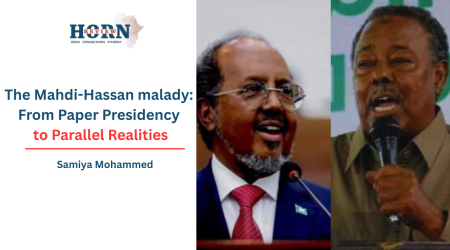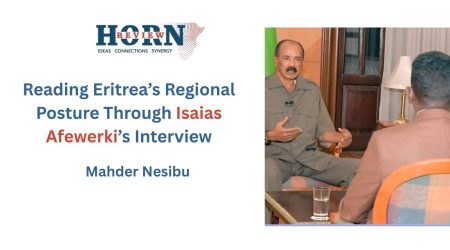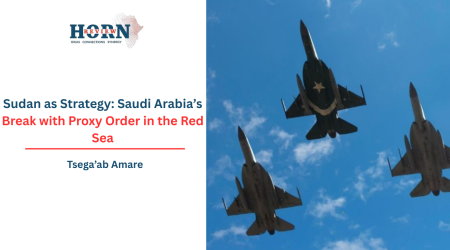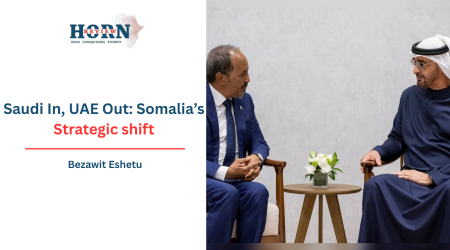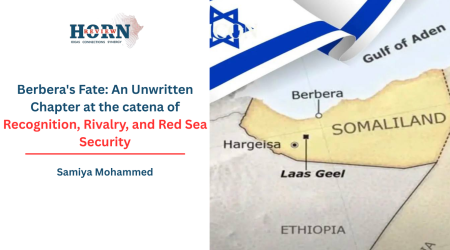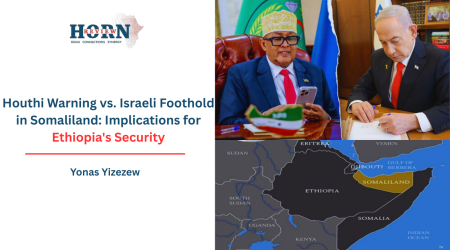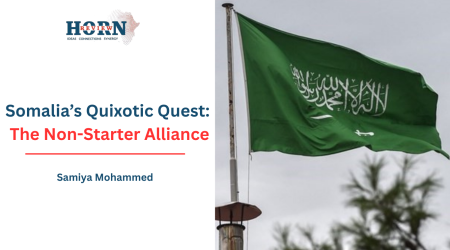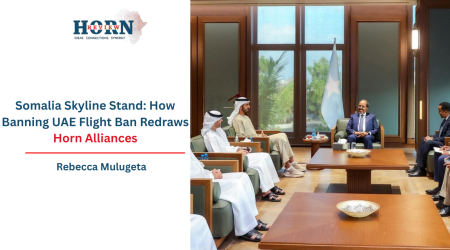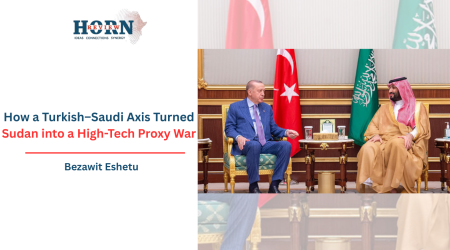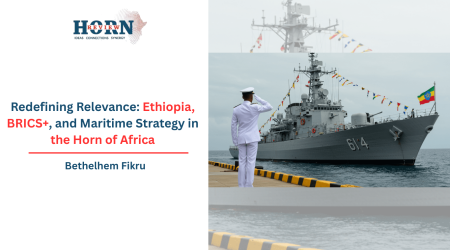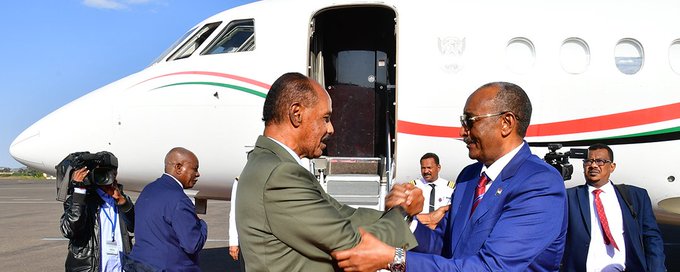
14
Apr
The Isayas-Al-Burhan Alliance and Its Geopolitical Ramifications for Ethiopia
Eritrean President Isaias Afwerki and Sudan’s Sovereign Council Chairman, General Abdel Fattah al-Burhan have formed an alliance with far-reaching consequences for Ethiopia and the Horn of Africa. While framed as a cooperative relationship, their partnership is a strategic maneuver aimed at shifting regional power dynamics. Both nations, driven by their own ambitions, have played significant roles in exacerbating instability in Ethiopia, aligning their interests in ways that undermine Addis Ababa’s security and influence.
Eritrea’s involvement is not based on regional solidarity but on a calculated effort to keep Ethiopia destabilized. Historically, Eritrea has actively interfered in Ethiopia’s internal affairs, often using proxy forces to exert pressure. By supporting Sudan, Eritrea strengthens a partner that has repeatedly sought to weaken Ethiopia. Meanwhile, Sudan, under al-Burhan, has capitalized on Ethiopia’s internal divisions, reportedly backing groups such as the Tigray People’s Liberation Front (TPLF) and the Oromo Liberation Army (OLA), both of which have played a destabilizing role in Ethiopia’s recent conflicts.
Beyond their bilateral cooperation, Eritrea and Sudan’s actions align with broader external interests that seek to contain Ethiopia’s rise. Sudan’s military maneuvers and Eritrea’s disruptive foreign policy contribute to a climate of volatility that hinders Ethiopia’s ability to consolidate regional leadership. As tensions over the Grand Ethiopian Renaissance Dam (GERD) persist, external actors, including Egypt, have sought to exploit Ethiopia’s internal challenges. By maintaining pressure on Ethiopia, both Eritrea and Sudan indirectly serve interests that benefit from a weakened and divided Ethiopia.
The growing alignment between Asmara and Khartoum presents a direct challenge to Ethiopia’s national security. Sudan’s continued involvement in arming non-state actors within Ethiopia fuels internal instability, while Eritrea’s erratic engagement in regional affairs ensures that tensions remain unresolved. This persistent volatility threatens Ethiopia’s long-term stability at a time when it seeks to assert itself as a dominant player in the Horn of Africa. In response, Ethiopia must adopt a multifaceted strategy, strengthening internal stability, enhancing diplomatic engagement, and proactively countering external threats. As Eritrea and Sudan continue to pursue policies that undermine Ethiopia’s position, Addis Ababa must remain vigilant and assertive in navigating the shifting geopolitical landscape of the region.
Eritrea’s involvement is not based on regional solidarity but on a calculated effort to keep Ethiopia destabilized. Historically, Eritrea has actively interfered in Ethiopia’s internal affairs, often using proxy forces to exert pressure. By supporting Sudan, Eritrea strengthens a partner that has repeatedly sought to weaken Ethiopia. Meanwhile, Sudan, under al-Burhan, has capitalized on Ethiopia’s internal divisions, reportedly backing groups such as the Tigray People’s Liberation Front (TPLF) and the Oromo Liberation Army (OLA), both of which have played a destabilizing role in Ethiopia’s recent conflicts.
Beyond their bilateral cooperation, Eritrea and Sudan’s actions align with broader external interests that seek to contain Ethiopia’s rise. Sudan’s military maneuvers and Eritrea’s disruptive foreign policy contribute to a climate of volatility that hinders Ethiopia’s ability to consolidate regional leadership. As tensions over the Grand Ethiopian Renaissance Dam (GERD) persist, external actors, including Egypt, have sought to exploit Ethiopia’s internal challenges. By maintaining pressure on Ethiopia, both Eritrea and Sudan indirectly serve interests that benefit from a weakened and divided Ethiopia.
The growing alignment between Asmara and Khartoum presents a direct challenge to Ethiopia’s national security. Sudan’s continued involvement in arming non-state actors within Ethiopia fuels internal instability, while Eritrea’s erratic engagement in regional affairs ensures that tensions remain unresolved. This persistent volatility threatens Ethiopia’s long-term stability at a time when it seeks to assert itself as a dominant player in the Horn of Africa.
In response, Ethiopia must adopt a multifaceted strategy, strengthening internal stability, enhancing diplomatic engagement, and proactively countering external threats. As Eritrea and Sudan continue to pursue policies that undermine Ethiopia’s position, Addis Ababa must remain vigilant and assertive in navigating the shifting geopolitical landscape of the region.

